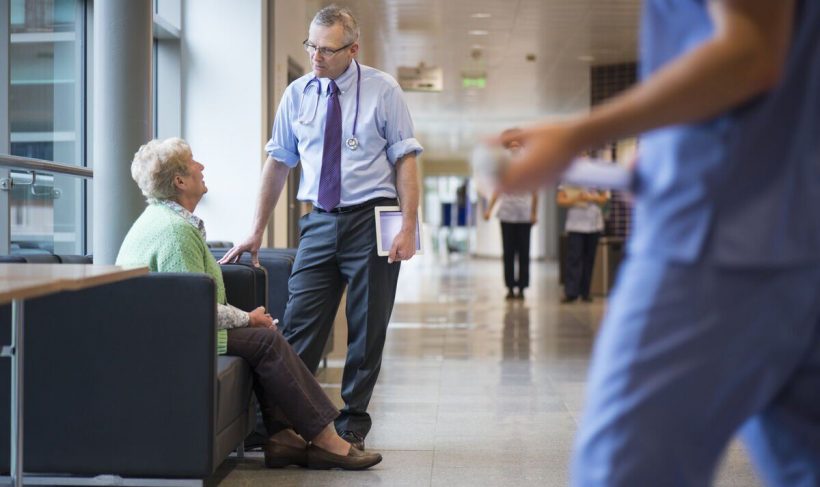
We use your sign-up to provide content in ways you’ve consented to and to improve our understanding of you. This may include adverts from us and 3rd parties based on our understanding. You can unsubscribe at any time. More info
However, the speed of any assessment depends on where you live, campaigners warn. The Midlands has the highest undiagnosed rate affecting more than 60,000 people.
Analysis by researchers Future Health found there were 325,862 people in England with dementia not yet flagged up by medics.
In Stoke-on-Trent, 83 percent of dementia patients have been diagnosed, but in neighbouring Stafford and surrounding area it is just 48 percent, the report reveals.
Sam Bolam, head of carers’ group Together In Dementia Everyday, said: “We hear regularly how difficult it is to get an accurate and timely diagnosis.”
The disease is defined as various brain disorders that trigger a loss of cognitive function.
There are around 900,000 people with dementia in the UK. This is projected to rise to 1.6 million by 2040.
The Covid crisis has led to a reduction in the proportion of patients receiving a diagnosis, with the number falling below 60 percent and missing the government target of two-thirds.
Richard Sloggett, founder of Future Health, said: “The pandemic set back the progress made on dementia diagnosis rates and urgent action is needed to support recovery.”
“The forthcoming dementia strategy must tackle regional disparities, particularly in how patient access to a diagnosis in rural areas can be improved.”
Dorset, Norfolk and Fylde and Wyre in Lancashire have the most serious challenges, with some of the highest prevalence of dementia but some of the lowest diagnosis rates.
Fiona Carragher, director at the Alzheimer’s Society, said: “This report shows the need to address regional and health disparities.”
“We must now urgently work together to improve diagnosis care and outcomes for people with dementia.”
Tory Laurence Robertson, co-chair of the all-party Parliamentary group on dementia, said: “Urgent action is needed to improve people’s access to healthcare and ensure that people do not suffer from delayed diagnosis.”
“The earlier dementia is diagnosed the better for a patient’s quality of life and to make sure they get the right treatment. This report highlights the importance of improving access to screenings and delivering diagnosis equipment to areas where diagnosis rates are low. The use of technology can also drive up diagnosis.”
The report calls for an urgent increase in training neurologists and a public health campaign to help people spot early signs of dementia and reduce the stigma so that people feel comfortable approaching their GP.
Source: Read Full Article






